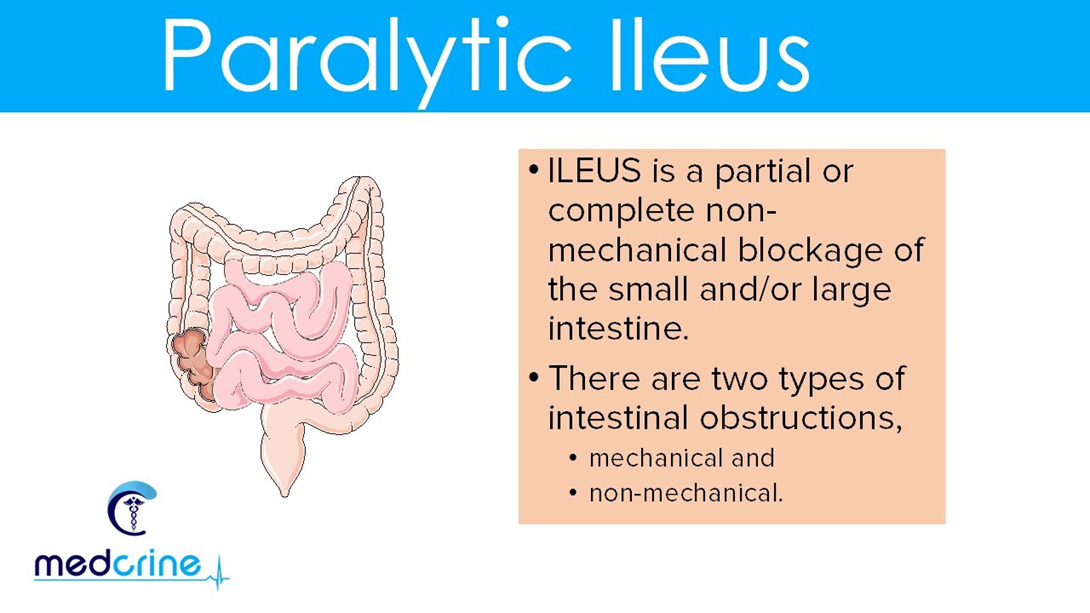The nurse is caring for a client on the third day following abdominal surgery and assesses the absence of bowel sounds, abdominal distention, and the client passing no flatus. These findings indicate the client is experiencing which of the following postoperative complications?
Fecal impaction
Incisional infection
Health care-associated Clostridium difficile
Paralytic ileus
The Correct Answer is D
Choice A reason: Fecal impaction typically presents with the inability to pass stool and may not be associated with the absence of bowel sounds.
Choice B reason: Incisional infection is usually indicated by localized redness, warmth, and possible discharge, not necessarily by the absence of bowel sounds or flatus.
Choice C reason: Health care-associated Clostridium difficile often presents with diarrhea, not the absence of bowel sounds or flatus.
Choice D reason: Paralytic ileus is characterized by impaired intestinal motility and transit, absence of the passage of flatus, diminished bowel sounds, abdominal distension, and intestinal dilatation, fitting the symptoms described.

Nursing Test Bank
Naxlex Comprehensive Predictor Exams
Related Questions
Correct Answer is C
Explanation
Choice A reason: Regression involves reverting to an earlier stage of development when faced with stress, which is not what Marie is doing.
Choice B reason: Repression involves unconsciously blocking out painful thoughts or feelings, which is different from Marie's conscious rationalization of her failure.
Choice C reason: Rationalization is a defense mechanism where an individual justifies an unacceptable behavior or feeling with a logical reason, avoiding the true explanation for the behavior. Marie is rationalizing her failure by blaming the instructor rather than accepting her own role in the outcome.
Choice D reason: Reaction formation involves behaving in a way that is opposite to what one truly feels, which is not applicable in Marie's case.
Correct Answer is C
Explanation
Choice A reason: Neuroticism is a personality trait characterized by anxiety, fear, moodiness, worry, envy, frustration, jealousy, and loneliness. It does not involve pretending to be ill.
Choice B reason: Psychosis refers to a mental disorder in which thought and emotions are so impaired that contact is lost with external reality. It is not associated with deliberately pretending to be ill.
Choice C reason: Malingering is the act of exaggerating or feigning illness for a secondary gain, such as financial compensation or avoidance of work.
Choice D reason: Hypochondriasis is a condition in which a person is excessively and unduly worried about having a serious illness. It does not involve deliberately pretending to be ill.
Whether you are a student looking to ace your exams or a practicing nurse seeking to enhance your expertise , our nursing education contents will empower you with the confidence and competence to make a difference in the lives of patients and become a respected leader in the healthcare field.
Visit Naxlex, invest in your future and unlock endless possibilities with our unparalleled nursing education contents today
Report Wrong Answer on the Current Question
Do you disagree with the answer? If yes, what is your expected answer? Explain.
Kindly be descriptive with the issue you are facing.
